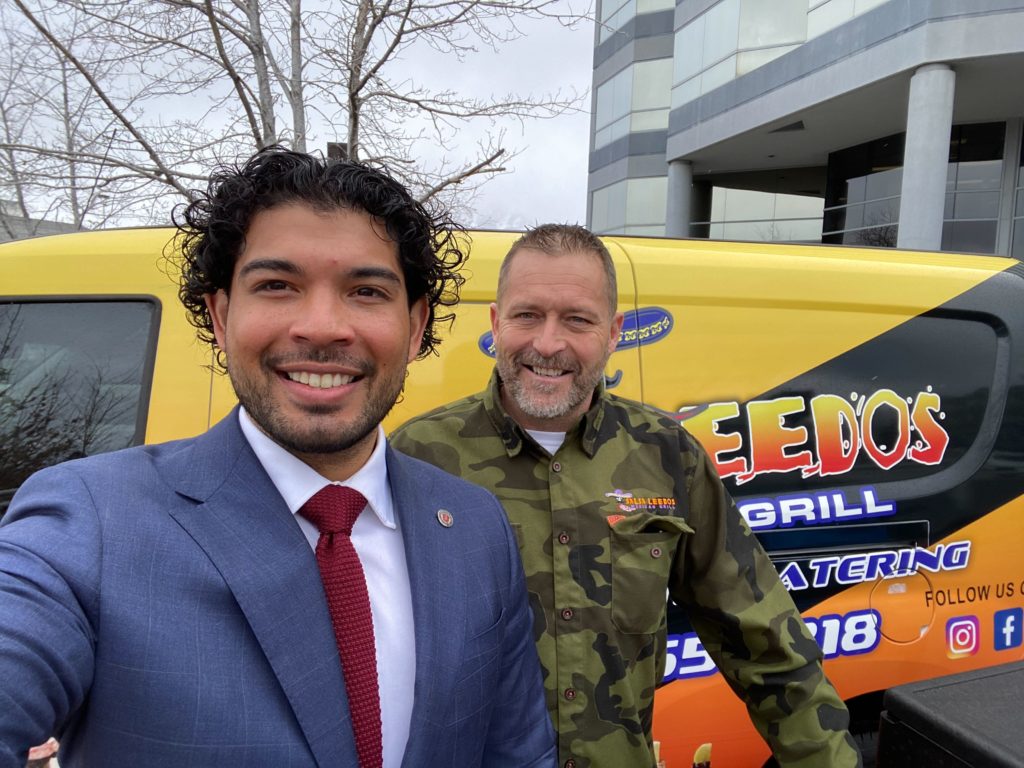
As a restaurant owner in Utah, it is important to have the right insurance coverage to protect your business from unexpected events. In this blog post, we will discuss 6 different types of insurance policies that restaurant owners in Utah should consider.
1. General Liability Insurance
General liability insurance is a must-have for any business, especially restaurants. It covers a wide range of incidents, such as customer slip-and-fall accidents, food-borne illness claims, and property damage caused by your business operations. If a customer sues your restaurant for any reason, this policy will help cover your legal defense costs and any damages awarded.
Example:
Let’s say a customer visits your restaurant and slips on a wet floor, and breaks their hip. The customer decides to sue your restaurant, claiming that you were negligent in failing to maintain a safe environment. Your general liability insurance would kick in, covering the cost of your legal defense and any damages awarded to the customer. This could include medical expenses, lost wages, and pain and suffering. Without general liability insurance, your restaurant could be on the hook for significant out-of-pocket expenses that could threaten the financial stability of your business.
2. Property Insurance
Property insurance covers the cost of repairing or replacing your restaurant’s physical property if it is damaged or destroyed due to a covered event. This can include fires, wind, hail, vandalism, and theft. Property insurance can also cover the cost of equipment breakdowns and food spoilage due to power outages.
Example:
Let’s say there is a fire at your restaurant that damages the building and destroys your kitchen equipment. Without property insurance, you would be responsible for covering the cost of repairs and replacements out-of-pocket! However, if you have property insurance, you could file a claim with your Insurance Company to help cover these costs. Your property insurance policy would cover the cost of repairing the physical structure of your restaurant, as well as the cost of replacing damaged equipment, such as ovens, refrigerators, and other kitchen appliances. This coverage would help you get your restaurant up and running again as quickly as possible, minimizing the impact of the fire on your business.
3. Workers’ Compensation Insurance
If you have employees, workers’ compensation (WC) insurance is required by law in Utah. It covers medical expenses and lost wages for employees who are injured on the job. Even if your restaurant is a small business with only a few employees, it is important to have this coverage to protect yourself and your employees in case of an accident. If you have employees and do not carry WC, the Utah Labor Commission will find you, and they will fine you. Oftentimes, the fine is greater than the cost of a proper WC Policy.
Example:
Let’s say that one of your employees is working in the kitchen and accidentally cuts their finger off while cutting onions. They require medical attention and a few days off work to recover. With workers’ compensation insurance, the injured employee’s medical expenses and lost wages would be covered, and they would be able to focus on their recovery without worrying about financial hardship. As the employer, you would also benefit from workers’ compensation insurance, as it would protect you from potential lawsuits related to the injury. Without workers’ compensation insurance, your restaurant could be liable for the full cost of the employee’s medical treatment and lost wages, which could be financially devastating for your business.
4. Liquor Liability Insurance
If your restaurant serves alcohol, liquor liability insurance is necessary to protect your business from alcohol-related incidents such as DUIs, fights, or injuries caused by intoxicated customers. This type of insurance can also help cover your legal defense costs and any damages awarded in a lawsuit.
Example:
Let’s say a customer at your restaurant consumes alcohol and then gets into a car accident, injuring themselves and others. If the customer decides to sue your restaurant, claiming that you served them too much alcohol and contributed to their impaired state, liquor liability insurance could come into play. This type of insurance would cover the cost of your legal defense, as well as any damages awarded to the injured parties. Without liquor liability insurance, your restaurant could be held financially responsible for the injuries and damages caused by the drunk customer, which could result in significant financial hardship. Having liquor liability insurance in place can help protect your restaurant from the potentially devastating financial consequences of these types of claims.
5. Business Interruption Insurance
Business interruption insurance provides coverage for lost income and expenses in the event that your restaurant is forced to close due to a covered event, such as a fire or natural disaster. This coverage can help you stay afloat during the recovery period and cover any ongoing expenses such as rent and payroll.
Example:
Let’s continue with the same example from Section 2 (Property Insurance) of the fire that burned your building and kitchen equipment. This fire forces you to close for several weeks while repairs are made. During this time, you’re unable to generate any income, but your fixed expenses such as rent, utilities, and payroll continue to accumulate. Without business interruption insurance, you would be responsible for covering these expenses out-of-pocket, which could be financially devastating. However, if you have business interruption insurance, you could file a claim to help cover the cost of these fixed expenses while your restaurant is closed. This type of insurance can provide you with the financial support you need to keep your business afloat during unexpected disruptions, such as natural disasters or other events that cause temporary closures.
6. Cyber Liability Insurance
In today’s digital age, cyber liability insurance is becoming increasingly important for businesses of all types, including restaurants. This coverage can help protect your restaurant from the financial losses and reputational damage that can result from a data breach or cyber attack.
Example:
Let’s say that your restaurant processes payments using a point-of-sale (POS) system that’s connected to the internet. Unfortunately, your POS system is hacked by cybercriminals, who steal the credit card information of your customers. This data breach exposes your customers to the risk of identity theft, and they decide to sue your restaurant for damages. In this situation, cyber liability insurance would come into play, covering the cost of your legal defense, as well as any damages awarded to the affected customers. Cyber liability insurance can also cover the cost of notifying customers about the data breach, offering credit monitoring services, and taking steps to prevent future breaches. Without cyber liability insurance, your restaurant could be responsible for significant out-of-pocket expenses related to the data breach, which could threaten the financial stability of your business.
Conclusion
In conclusion, owning your own business, especially restaurant in Utah can be a very rewarding. At the same time, the privilege comes with its own unique range of risks that can threaten your bottom line. That’s why it’s essential to have the consult with a knowledgeable and experienced agent to help you protect your restaurant from the unexpected. By working with a trusted insurance agent you can develop a comprehensive insurance program so you can operate your business with confidence.
So don’t wait until it’s too late – invest in the right insurance coverage today and ensure that your restaurant is prepared for the unexpected.
